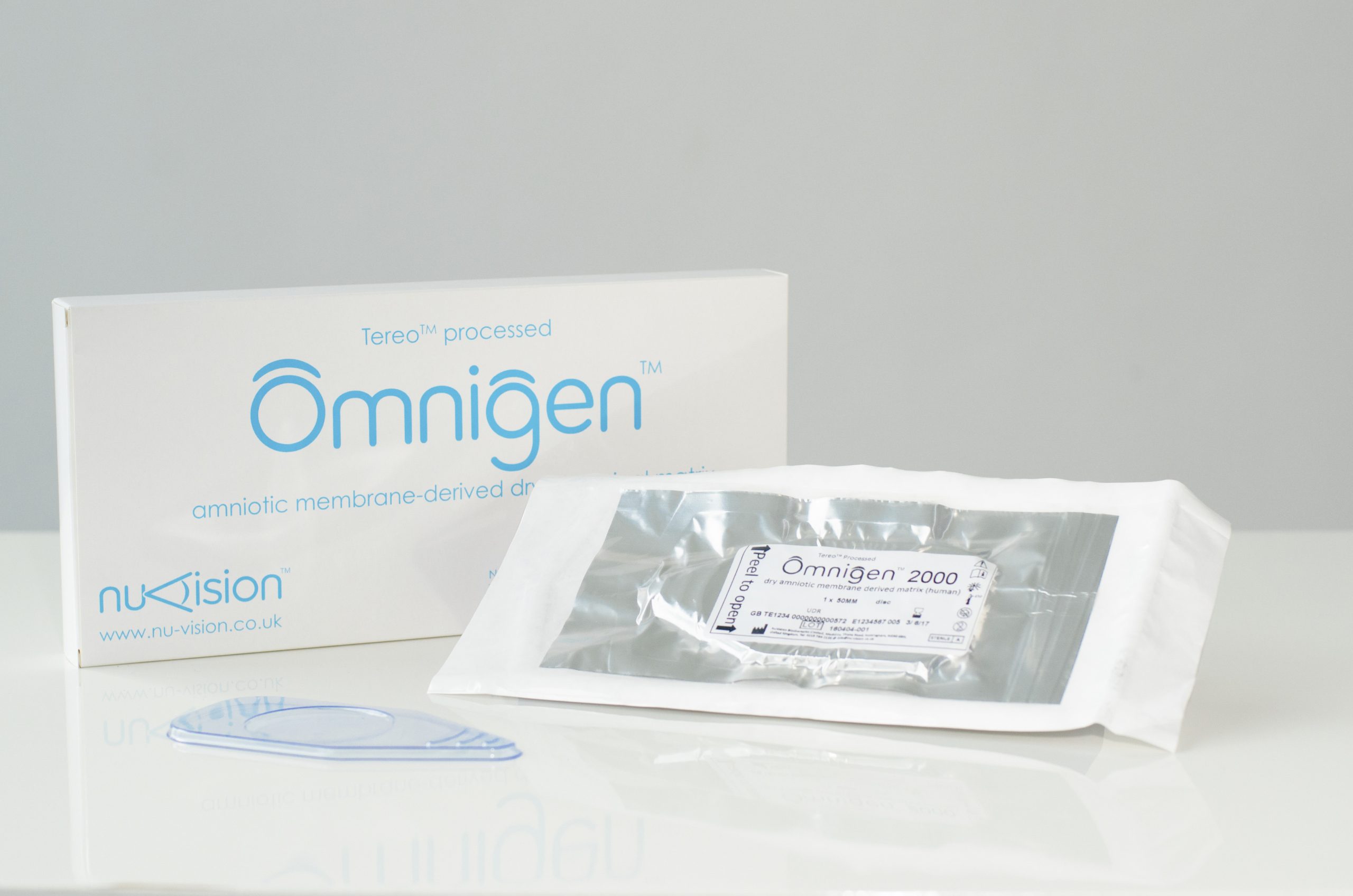Breakthrough in dry eye disease therapy

Dehydrated amniotic membrane can be used in High Street practice with training
A study conducted by Aston University in partnership with NuVision Biotherapies, published in Clinical Ophthalmology, is the first-of-its-kind to demonstrate the significant, long-term effectiveness of dehydrated amniotic membrane in the treatment and management of moderate-to-severe dry eye disease (DED).
The trial involved 70 patients living with moderate-to-severe DED for an average of 12.5 years. Before the study, 81 per cent of participants were unsuccessful in managing their dry eye. Participants were assessed at the time of treatment with amniotic membrane, and then at one, three and six months post-treatment.
Results showed that 65 per cent of patients experienced a clinically significant symptom reduction, and 88 per cent improved within one month. The study also noted significant improvement in the nerve health of the cornea and reduced inflammation, concluding that a one-week treatment with amniotic membrane significantly reduces dry eye symptoms.
As featured in the May issue of Dispenisng Optics, amniotic membrane can be applied to the eye using a specially adapted soft contact lens which uniquely holds the tissue in place, acting as a biological bandage to protect the surface of the eye, promote healing and reduce inflammation. The treatment is non-invasive, requiring no surgery or sutures, and can be completed in four to six minutes in a High Street setting.
The dehydrated amniotic membrane (Omnigen) and specialised bandage contact lens (OmniLenz) used to hold the Omnigen in place during treatment were developed and provided by NuVision Biotherapies. This innovative technique allows surgery-free application, enhancing availability to both clinicians and patients in primary and secondary care.
James Wolffsohn, professor of optometry at Aston University, who led the research team, said: “Our study’s findings represent a significant stride forward in ophthalmic advancements. The evolution of this technology previously used as a transplant and relatively inaccessible in community healthcare due to storage limitations, into a straightforward, surgery-free application, marks a pivotal moment. This transformation empowers clinicians with an exciting, easily accessible treatment option for tackling this chronic and debilitating disease.”
Dr Andrew Hopkinson, CSO at NuVision Biotherapies and founder, added: “Studies like this underscore the critical need for innovations in eyecare to support patients in the management of what can be a debilitating condition. These results reaffirm my reasons for entering into this research field and establishing NuVision to facilitate the accessibility of innovative treatments, like Omnigen and OmniLenz, for clinicians and their patients. I am optimistic that these initial findings will guide more professionals in recognising the inherent benefits of integrating treatment options, such as dehydrated amniotic membrane, into their daily practice.”
ABDO is hoping to deliver training in the application of Omnigen/OmniLenz for contact lens opticians, in partnership with NuVision, at its National Resource Centre in the near future.